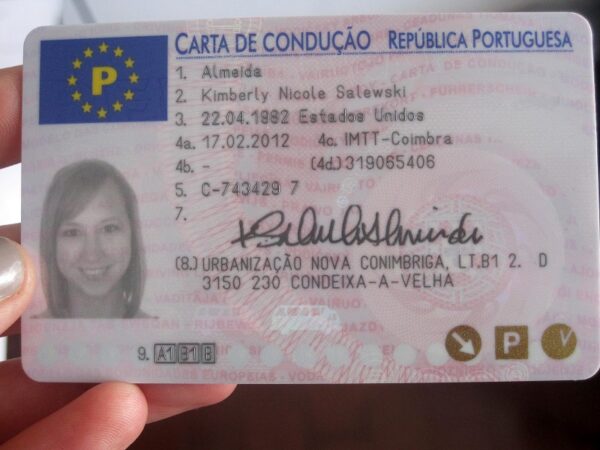The Comprehensive Guide to Buying Licenses: What You Need to Know
In various fields-- consisting of software application, home entertainment, and copyright-- obtaining a license is typically a legal need. This short article will explore what a license is, the various types available, the steps essential for buying a license, and factors to consider to remember throughout the process.
Understanding the Concept of Licensing
A license is a legal permission given by the licensor (the party granting the license) to the licensee (the party receiving the license) to utilize or do something that they would not otherwise be permitted to do. Licenses can apply to various domains, consisting of:
- Software: Allowing users to set up and use a program.
- Music and Entertainment: Rights to utilize a tune, video, or other media in a job.
- Copyright: Permission to utilize patented inventions or hallmarks.
Licensing is necessary for legal protection, compliance, and permitting creators to monetize their work.
Kinds of Licenses
1. Software application Licenses
Software application certifies define how an item can be used, distributed, and customized. Common types consist of:
- Freeware: Software that can be utilized at no charge but includes restrictions.
- Shareware: A trial variation for testing before purchasing the complete software application.
- Proprietary License: The user is permitted to use the software application under particular conditions however does not have ownership.
2. Imaginative Licenses
Imaginative licenses prevail in the arts and media sectors. They consist of:
- Public Domain License: Content not safeguarded by copyright and can be utilized freely.
- Creative Commons: Various licenses that enable developers to interact which rights they book and which they waive.
3. Intellectual Property Licenses
These licenses refer to patents, hallmarks, and copyrights.
- Unique Licenses: The licensee has the sole right to use the intellectual home.
- Non-exclusive Licenses: Multiple celebrations can utilize the very same intellectual property.
The Process of Buying a License
Buying a license may seem overwhelming, but breaking down the process into workable steps can streamline it substantially.
Step 1: Identify Your Needs
Before acquiring a license, assess your specific requirements. Think about the following questions:
- What is the purpose of the license?
- Which type of license is suitable for your job?
- Exist any restrictions you require to be conscious of?
Action 2: Research Available Licenses
Once your needs are established, research study your alternatives. Take the time to compare various licenses in terms of:
- Cost
- Terms and conditions
- Evaluation process and renewal treatments
Action 3: Communicate with the Licensor
As soon as you discover a possible license that meets your requirements, communicate with the licensor. This may include:
- Sending a query about the license.
- Asking for a copy of the licensing arrangement.
- Negotiating terms, if possible.
Step 4: Review the Legal Documentation
Before case, it's important to read and understand the licensing agreement. This may require seeking advice from lawyers to guarantee that all provisions are comprehended and appropriate.
Step 5: Make the Purchase
When prepared, continue to purchase the license. This typically includes filling out documentation and making a payment through the preferred payment approach.
Action 6: Maintain Records
After buying the license, preserve digital and paper copies for your records. It's essential for showing your right to utilize the licensed product.
Key Considerations When Buying a License
When taking part in the process of buying a license, keep the following critical factors to consider in mind:
- Legitimacy of the Licensor: Ensure the business or private giving the license is genuine to avoid rip-offs.
- Terms of Use: Clearly understand how you are permitted to utilize the licensed material.
- Renewal Policies: Be mindful of license expiration and renewal requirements.
- Potential for Future Fees: Look out for any covert fees that may arise later.
Regularly Asked Questions (FAQs)
Q1: Do I need a license for free software?A1: While some free software application does not require a license, others may have particular licensing terms you'll require to follow. Q2: Can I modify licensed software?A2: Modification depends upon the type of license. Make sure to examine the
terms. Q3: What happens if I use licensed product without permission?A3: Unauthorized usage might lead to legal actions, including fines and lawsuits. Q4: Is it possible to get a refund after buying a license?A4: Refund policies differ by licensor, so always examine beforehand.
Q5: Where can I find trustworthy licensors?A5: Research online reviews, forums, or industry recommendations to discover trustworthy licensors. Navigating the world of licensing
can seem complex, but understanding the types
of licenses offered and the process of obtaining one can substantially simplify your experience.
By taking the essential steps and thinking about all relevant elements, individuals and companies can effectively get licenses that secure both their interests and those of the original creators. Eventually, proper licensing cultivates imagination and development while supplying legal security in a constantly progressing landscape. Summary Table: Key Steps to Buy a License Step Description Identify Needs Determine what kind of license fits your particular use. Como Comprar Carta De Condução Compare various licenses across crucial criteria. Interact Talk about with please click the following article and negotiate terms. Evaluation Documentation Understand all conditions completely. Make thePurchase Complete payment and receive the license. PreserveRecords Keep copies ofall license documents for your records.Taking these stepswill lead to a successful licensingexperience for anyuser or developer wishing to protect their possessions whilerespecting intellectual property rights.

